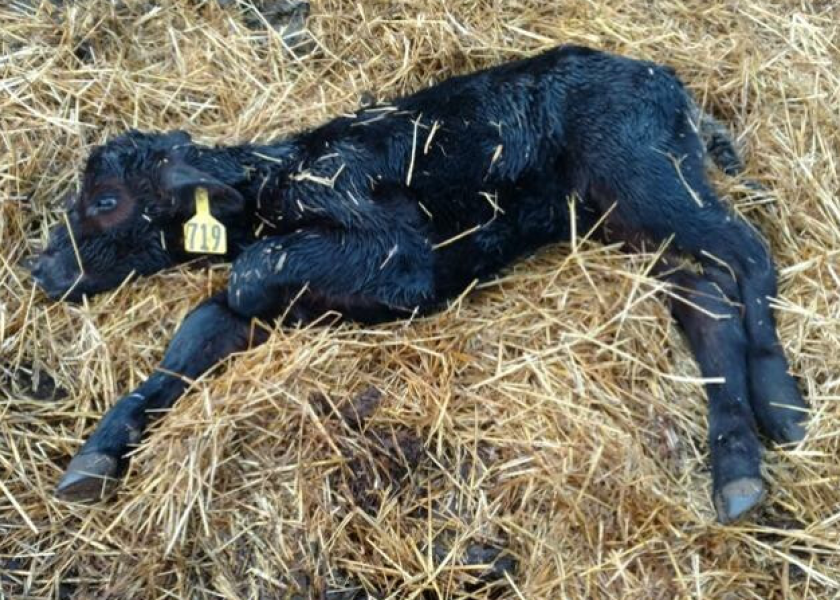Prepare Now To Keep Calf Scours At Bay

This article was prepared by Tim Parks, DVM, Ruminant Technical Service Manager, Merck Animal Health
Scours in young calves has a significant economic impact due to treatment cost, lost performance and mortality. Both viral and bacterial pathogens can cause scours – and they do so in different ways – but anytime there is damage to the intestinal track, nutrient absorption is negatively affected and thereby calf performance. What’s more, the 2007 National Animal Health Monitoring System found that digestive problems, which included scours, caused 14 percent of losses in calves less than 3 weeks old. This is why it is critical to take steps to prevent scour infections.
A good offense for calf scours can start at preg-check. Aside from determining pregnancy and estimating calving dates, preg-check is an opportunity to evaluate the body condition of cows and heifers, and adjust nutritional or mineral requirements so they are in adequate body condition as they get close to calving. In areas that may be impacted by drought, this is especially important as feed supplementation may be needed to be sure protein and energy requirements are being met.
This also is a good time to consider a scours vaccine. Vaccinating cows and first-calf heifers with a scours vaccine prior to calving stimulates antibody production that will result in higher-quality colostrum, ultimately giving calves better protection against scours.
Not all scours vaccines are the same, so it’s important to select one that offers broad-spectrum protection. Primary scours disease-causing agents include bacteria such as E. coli and clostridium, and viruses such as rota and corona, and typically more than one pathogen is involved.
Following the label instructions regarding to vaccination timing is critical to stimulating and optimizing protective antibodies in colostrum. Vaccinate too early and an antibody response may start to fall off prior to maximum colostrum being made. Vaccinate too late and colostrum may be made before an antibody response is mounted.
For example, you can administer Merck’s Guardian scours vaccine five to seven weeks prior to calving to boost antibody levels in the cow’s colostrum, so the newborn calf will have increased protection from scours. First-calf heifers or cows not previously vaccinated should receive an initial dose around 12 weeks prior to calving and then a booster three to six weeks following initial vaccination.
Vaccines aid in helping to prevent scours but management is also important. Starting with colostrum intake, it is ideal that calves get 2 quarts of colostrum within two hours after birth and another 2 quarts within six hours after birth for the best antibody absorption. It’s critical they have had colostrum within the first 12 hours. Vaccinating the cow with an effective vaccine only works if the calf receives an adequate amount of colostrum.
It’s also important to manage the environmental stressors and provide as much clean, open space as possible. Wet weather, crowding of calving areas or muddy lots can cause stress and lead to exposure to disease agents. It’s important to have a calving plan in place to give calves the best possible start and to handle any potential obstacles.
If scours occurs, diagnostics can help you identify the specific pathogens and devise a plan for what can be done going forward.







